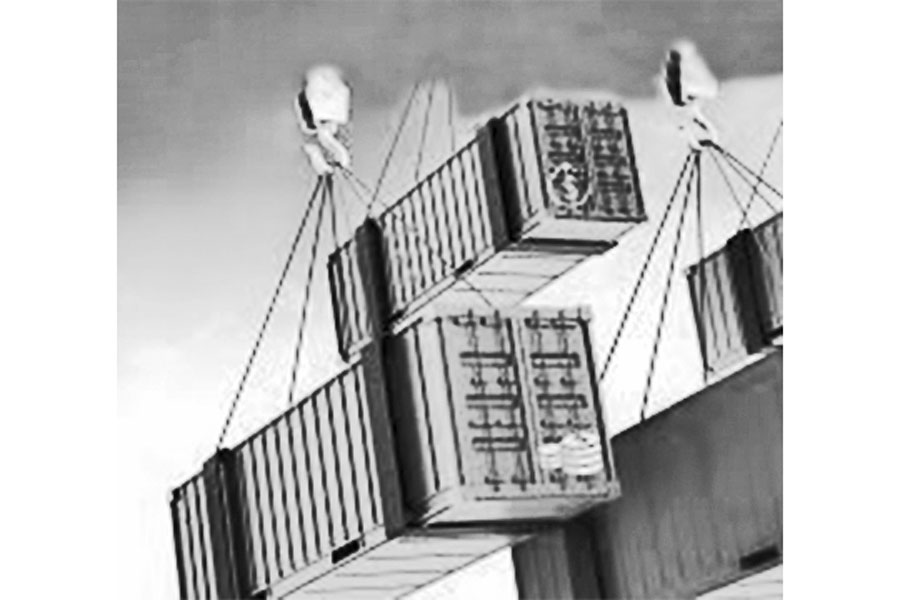
Published :
Updated :

The Foreign Investors Chamber of Commerce and Industry (FICCI) held a seminar titled 'National Logistics Policy 2024 of Bangladesh: From Policy Framework to Execution' at a city hotel on Tuesday last. The policy is being slated to be a major step for Bangladesh "towards bolstering its position in the global market and spurring economic development." The event brought together policymakers, key businesses involved in supply chain, logistics companies and experts who pointed out that the national policy is the fruit of collaborative efforts of all major stakeholders involved in the transportation of goods on both domestic and international routes.
The policy provides direction as to how to lower business costs, boost exports that will help Bangladesh integrate better into the Global Value Chain - all of which are essential elements for building the government's vision of a 'Smart Bangladesh'. Discussants agreed that for any of this to happen, the state must agree to implement the reform agenda stipulated in the policy prior to execution of the policy.
For the country to have a competitive business climate, a lot remains to be done. Major bottlenecks have contributed to unsustainable business practices that are not only unethical but make no sense from a financial point of view. With a national policy in place setting clear goals and what needs to be done will help, as one former MCCI president put it, attract capital, create jobs, demand new skills and generally enhance logistics, increase competitiveness and boost productivity. But as agreed upon in principle by most participants, the success of the policy will depend squarely on the reform plan to overcome sector-wise challenges that revolve around developing a skilled workforce and creating an investment-friendly environment, attracting both local and foreign direct investment.
The policy, if implemented as per plan, envisages a situation where cost of production will decrease, exports will increase. There is direct correlation between cost reduction and export boost. It is estimated that if logistics costs are reduced by 25 per cent, exports will increase by around 20 per cent. That is a large increase for any nation. Again, if the average speed of vehicles on the road is increased to 40 km/h, exports are slated to increase by 3.70 per cent due to reduction in lead time, which happens to be a major nagging problem for international trade in Bangladesh.
As pointed out by a former FICCI president (and current President of Amcham), that while the policy is comprehensive, everything hinges on correct implementation. Interestingly, none of the logistics companies in Bangladesh are providing full 3 PL services due to regulatory bottlenecks, whereas global logistics companies are providing 3 PL, 4 PL and even 5 PL services elsewhere. 3 PL means those providers who provide "international transportation, inventory management, order management, distribution and other value-added services. 4 PL is more advanced than 3 PL and can manage entire supply chain management of manufacturers and retailers." The policy and its correct implementation could put Bangladesh on the trajectory to a trillion-dollar economy in the next few years. The difference between this policy and others is that the government involved private sector and development partners in policy formulation at every stage.
Presently, Bangladesh's economy is worth around US$460 billion and for it to move ahead, such a policy was much needed to connect all the dots between business, trade under a national network. Much work has been done under the present government in terms of infrastructure development with major milestones like the Padma Bridge, Dhaka Metro Rail and expansion of several national highways from 2-lane to 4-lane, the Bangabandhu Sheikh Mujibur Rahman Tunnel (also known as Karnaphuli Tunnel), etc. All these come under the aegis of connecting river ports, with other ports on land, sea and air providing a network to be governed under a national logistics policy. Hence, the reform agendas are considered a prerequisite to the correct policy implementation.
The importance of railway has finally been highlighted. Maximisation of a vast rail network is considered essential for the fast, safe and cheap movement of bulk goods and remains grossly underutilised in the country. This service has consistently been undermined at policy level by powerful vested interests and it is necessary to break this powerful nexus that has been holding back faster growth of the economy by reducing dependence on expensive road transportation.
Lots of work remains to be done. Lack of coordination has been identified as a major bottleneck and there is both underutilisation and major completed infrastructure like Pangaon ICD and Patenga container terminal remaining inoperative. The newly-formulated policy has the potential to integrate the various land terminals, land ports, inland container depots being developed or already developed by private and public entities. This will propel growth of the economy. It all hinges on proper implementation, which in turn depends on the much-needed reforms.
mansur.thefinancialexpress@gmail.com


 For all latest news, follow The Financial Express Google News channel.
For all latest news, follow The Financial Express Google News channel.